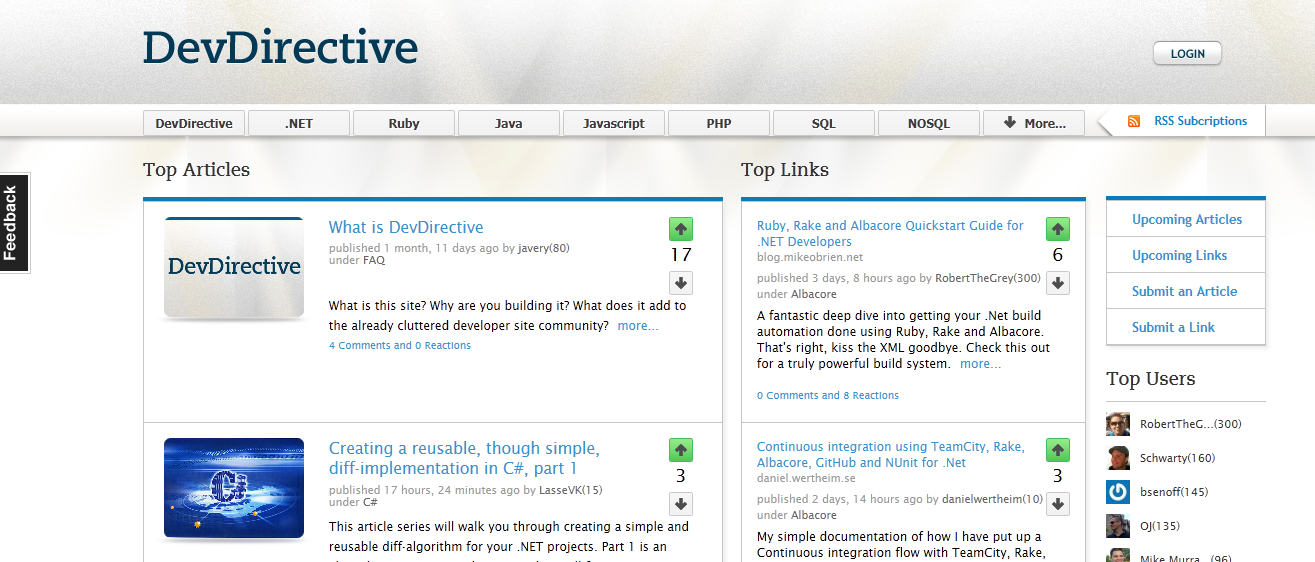As a software developer you need to stay on top of things by reading articles, watching screencasts, following the right people on twitter,… Of course you have to find the good stuff else you are going to waste most of your time. For this there are already several sites out there. Sites like DZone and DotNetkicks will help you find the good stuff by having a voting system. But voting is flawed concept however you look at it. People have strong opinions and most won’t coincide with yours. Just look at Reddit and the massive downvoting on most articles.
So what’s new in devdirective I hear you ask that the others don’t have? They too have a voting system, it seems. Even with downvotes, which is something I’m not a fan of.
Here is what James Avery has to say about it.
DevDirective came from the realization that 99% of the sites that host developer articles are terrible. Plastered in ads, articles are spread out across 5-10 pages to maximize their impressions, and for the most part articles are un-edited, incorrect, and quickly out of date.
When StackOverflow launched it created a better way to ask questions and get answers about programmer related topics. StackOverflow obsoleted developer forums for thousands of developers – there was no reason to trudge through the hard to navigate, ad plastered, and often incorrect forum sites.
The goal of DevDirective is to do the exact same thing to the terrible article sites that are still out there. A secondary goal is to help give great writers who are writing on individual blogs a place to get a larger readership than they can get on their blog.
So the question is how do we do it? What makes DevDirective different from the other article sites out there? Here are our four core tenants:
That promises to be a good start. Will it be better than the rest? If I knew I would be a millionaire, and I’m not, so I have no clue.
Do they have a VB.Net section? Yes. But it is empty for the moment.
So this is one to try out and see where it goes in the next few months.
Go check it out now, DevDirective.





 Chris is awesome.
Chris is awesome.